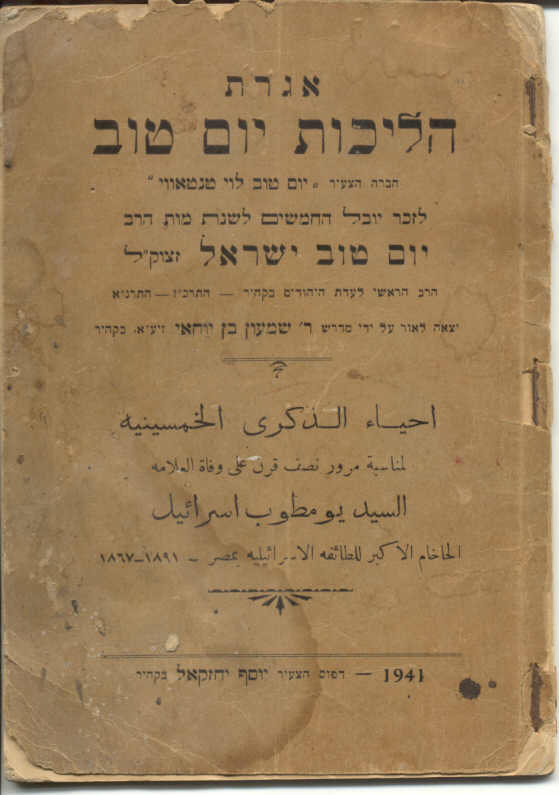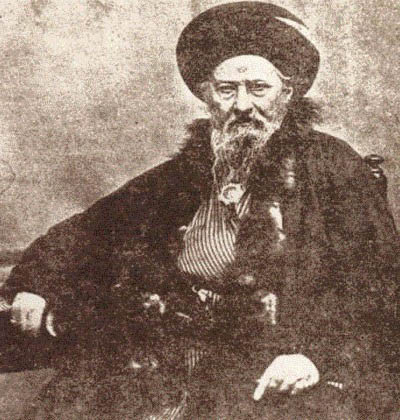
Who's Who
Prominent Rabbis in Egypt
Moses Maimonides (Rambam) (1135 - 1204)
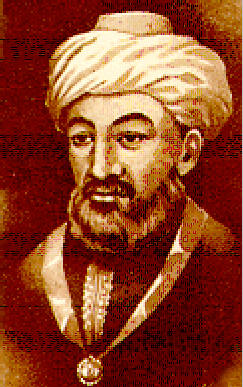 If one did not know that Maimonides was the name of a man, Abraham Joshua Heschel wrote, one would assume it was the name of a university. The writings and achievements of this twelfthcentury Jewish sage seem to cover an impossibly large number of activities. Maimonides was the first person to write a systematic code of all Jewish law, the Mishneh Torah; he produced one of the great philosophic statements of Judaism, The Guide to the Perplexed; published a commentary on the entire Mishna; served as physician to the sultan of Egypt; wrote numerous books on medicine; and, in his "spare time," served as leader of Cairo's Jewish community. It is hardly surprising that when Shmuel ibn Tibbon, the Hebrew translator of The Guide to the Perplexed (which had been written in Arabic), wrote Maimonides that he wished to visit him to discuss some difficult points in the translation, Maimonides discouraged him from coming:
If one did not know that Maimonides was the name of a man, Abraham Joshua Heschel wrote, one would assume it was the name of a university. The writings and achievements of this twelfthcentury Jewish sage seem to cover an impossibly large number of activities. Maimonides was the first person to write a systematic code of all Jewish law, the Mishneh Torah; he produced one of the great philosophic statements of Judaism, The Guide to the Perplexed; published a commentary on the entire Mishna; served as physician to the sultan of Egypt; wrote numerous books on medicine; and, in his "spare time," served as leader of Cairo's Jewish community. It is hardly surprising that when Shmuel ibn Tibbon, the Hebrew translator of The Guide to the Perplexed (which had been written in Arabic), wrote Maimonides that he wished to visit him to discuss some difficult points in the translation, Maimonides discouraged him from coming:
https://www.jewishvirtuallibrary.org/moses-maimonides-rambam
Wikipedia Born: 1135, Córdoba, Spain Died: December 13, 1204, Fustat, Egypt
Rabbi Eliahu Hazan
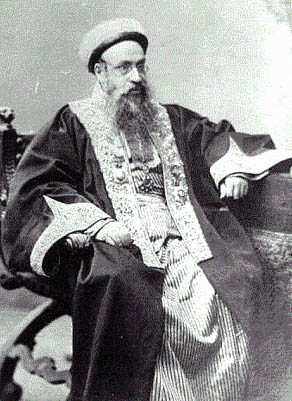 Eliyahu Bekhor ben Raphael
Joseph Hazzan (Hazan), Chief Rabbi of Alexandria. Birthdate: 1845 Birthplace: Izmir, Turkey Death: circa 1908 (59-67) Alexandria,
Alexandria Governorate, Egypt
Eliyahu Bekhor ben Raphael
Joseph Hazzan (Hazan), Chief Rabbi of Alexandria. Birthdate: 1845 Birthplace: Izmir, Turkey Death: circa 1908 (59-67) Alexandria,
Alexandria Governorate, Egypt
Elijah Bekhor ben Raphael Joseph Hazzan (d. 1908) moved to Jerusalem at the age of ten with his grandfather, Rabbi Hayyim David ben Joseph Raphael Hazzan. From the 1860s, he fulfilled public roles in the Sephardi congregations of Jerusalem, and in 1870 he visited England, France, and Italy, meeting with Sir Moses Montefiore and Baron de Rothschild. Two years later he went to Algeria and Tunisia as a meshullaḥ and was profoundly impressed by the impact of modern French civilization on Jews there, particularly the emancipated Algerian Jews. He gave voice to his thoughts on modernity and emancipation in his important philosophical dialogue Zikhron Yerusalayim (A Remembrance of Jerusalem; Livorno, 1874). In 1875, he accepted the chief rabbinate of Tripoli and during his tenure restructured the city’s communal life. In 1888 Elijah Bekhor moved to Alexandria, where he remained for the rest of his life. Among his books are the responsa collection Ta‘alumot Lev (Secrets of the Heart; Livorno, 1878) and Neve Shalom (A Peaceable Habitation; Alexandria, 1893).
Rabbi Aharon Ben Shimon
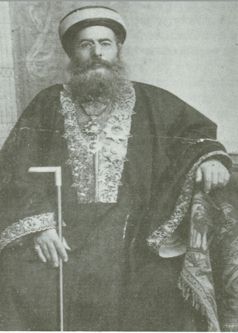 Rabbi
Raphael Aharon ben Shimon was born in Rabat 1848 and died in 1928 in Tel Aviv. At young age was appointed to serve as the secretary to his
father’s court in Jerusalem. He travelled as an emissary to Germany and France on behalf of the yeshivah Doresh Zion in Jerusalem, but upon the
death of his father, he was appointed emissary on behalf of the board of the Morocco Community in Jerusalem. He used this as an opportunity to
gather and published the writing of Moroccan Jewry. Later he was appointed as Chief Rabbi (Hakham Bashi) in Egypt (1891-1921). His final years
were spent in Tel Aviv as Judge
Rabbi
Raphael Aharon ben Shimon was born in Rabat 1848 and died in 1928 in Tel Aviv. At young age was appointed to serve as the secretary to his
father’s court in Jerusalem. He travelled as an emissary to Germany and France on behalf of the yeshivah Doresh Zion in Jerusalem, but upon the
death of his father, he was appointed emissary on behalf of the board of the Morocco Community in Jerusalem. He used this as an opportunity to
gather and published the writing of Moroccan Jewry. Later he was appointed as Chief Rabbi (Hakham Bashi) in Egypt (1891-1921). His final years
were spent in Tel Aviv as Judge
Nehar Misrayim
Author: Raphael Aharon ben Shimon
Composed in Alexandria (1908 CE). Nehar Misrayim was written by Rabbi Raphael Aaron ben Simeon. Published between 1891 and 1920, it contains many laws, customs and decrees that were issued by Egyptian Jewry's rabbinic leadership in Cairo.
Rabbi Nahum Effendi
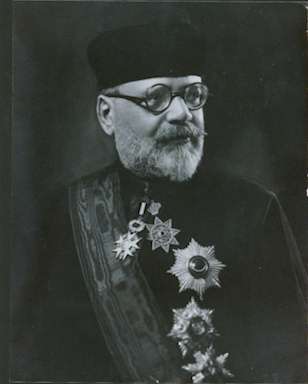 One of the most eminent rabbis in the Middle East was Haim Nahum Effendi - a scholar, lawyer, linguist and diplomat who served as Chief Sephardic Rabbi of Egypt for over thirty-five years from 1925 until his death in 1960. During this period Rabbi Nahum was witness both to a vibrant and successful community of 80,000 Jews living in Egypt and also to the community's disintegration after 1948 when government hostility, violence, economic restrictions, confiscation and deportation caused most Jews to leave. To this day he is remembered with honor and affection by those who were privileged to know him.
One of the most eminent rabbis in the Middle East was Haim Nahum Effendi - a scholar, lawyer, linguist and diplomat who served as Chief Sephardic Rabbi of Egypt for over thirty-five years from 1925 until his death in 1960. During this period Rabbi Nahum was witness both to a vibrant and successful community of 80,000 Jews living in Egypt and also to the community's disintegration after 1948 when government hostility, violence, economic restrictions, confiscation and deportation caused most Jews to leave. To this day he is remembered with honor and affection by those who were privileged to know him.
Rabbi Haiim Moussa Doueck
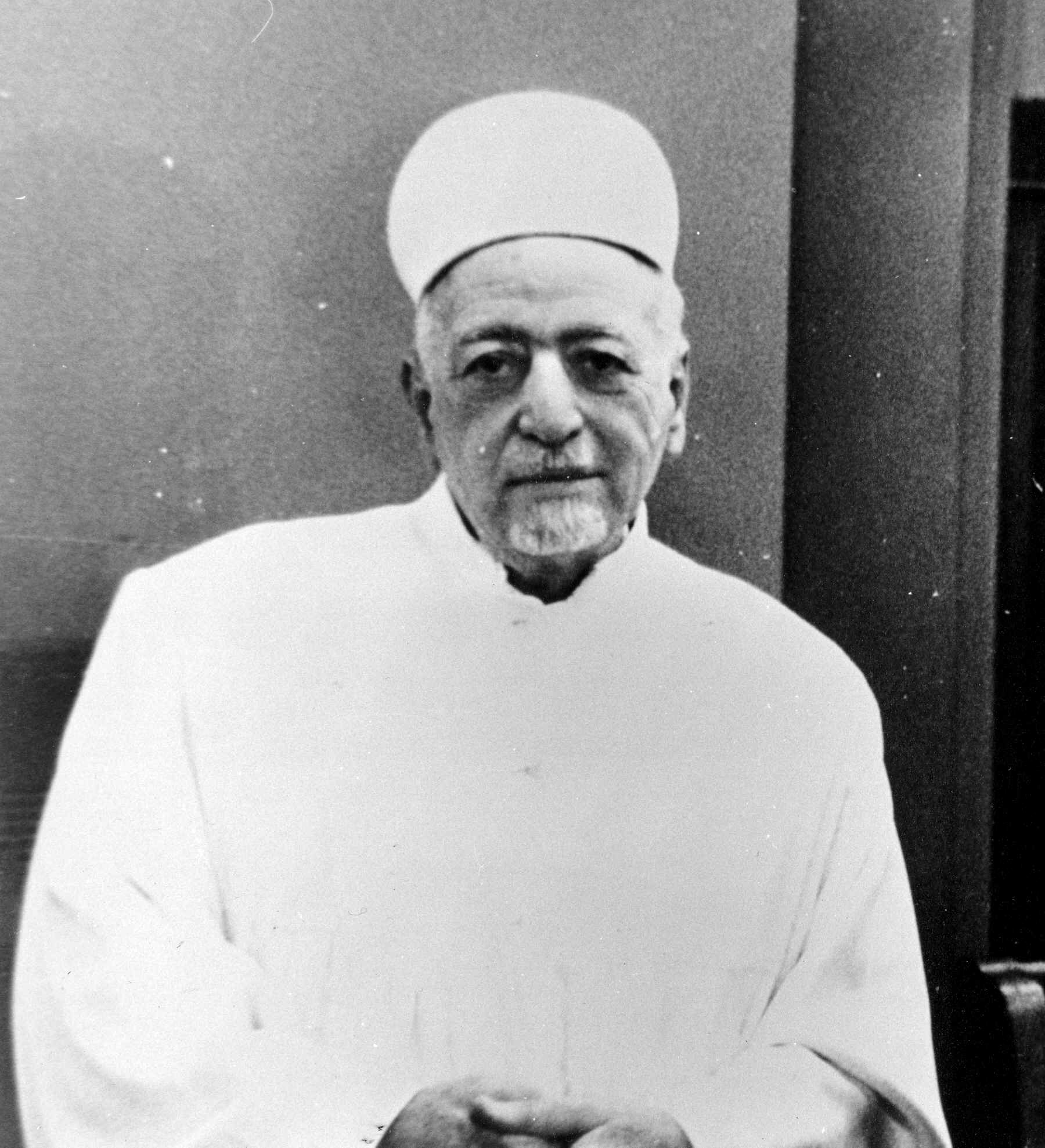 Rabbi Haim Moussa Douek was born in Antab, Turkey, in April 1905. He was the first-born child of Moussa Haim Douek and Zarifa Shaoul Harari, observant Jews who engaged in trade in an area close to the present-day Turkish-Syrian border.
Rabbi Haim Moussa Douek was born in Antab, Turkey, in April 1905. He was the first-born child of Moussa Haim Douek and Zarifa Shaoul Harari, observant Jews who engaged in trade in an area close to the present-day Turkish-Syrian border.
In 1910, the family, which by that time had grown to include a brother and a sister, emigrated to Egypt. Rabbi Douek attended day school at the "Ecole de l’Alliance Israelite Universelle". In the afternoon, he attended "Keter Torah" for Judaic studies. On Shabbat and holidays, he attended the Aleppo-rite synagogue "Kenisset el Halabiya” with his father. He pursued rabbinic studies from 1918 to 1933 at the Great Yeshivah "Keter Torah" in Cairo. There he studied Talmud with Rabbi Yossef Pinto, Z”TL, the renowned head of the yeshivah, under the supervision of Rabbi Haim Nahoum, Z”TL, the Chief Rabbi of Egypt at the time.
Rabbi Ovadia Yosef
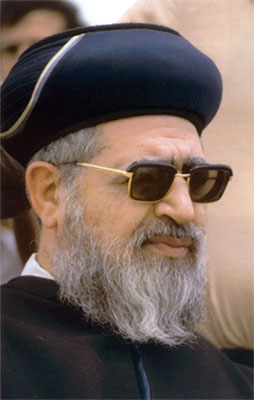 Haim Ovadia Yosef was a former Sephardi Chief Rabbi of Israel and one of the foremost Talmudic authorities of his generation.
Haim Ovadia Yosef was a former Sephardi Chief Rabbi of Israel and one of the foremost Talmudic authorities of his generation.
Yosef (born September 23, 1920; died October 7, 2013) was born in Baghdad under the name Ovadia Yosef Ovadia, or Abdullah Youseff in his native Arabic. At the age of four, Yosef immigrated with his family to Palestine where they settled in Jerusalem. At age 20 he received rabbinical ordination from Rav Ben-Zion Ouziel. In 1945 he was appointed a dayan or judge of the Sephardi Bet Din (rabbinical court) in Jerusalem.
In 1947, at the invitation of Rabbi Aharon Chouke, Yosef moved to Cairo, Egypt where he was elected head of the bet din and also became deputy chief rabbi of Egypt. Ovadia published his first work at the age of 18 in Cairo, and while there he refused to speak against the State of Israel and forbade Jewish contributions to the Egyptian military. He also insisted on his right to speak in Hebrew. ....
Rabbi Ovadia Yosef passed away in October 2013 of multiple organ failure after a history of medical issues. His funeral in Jerusalem attracted approximately 800,000 people from across Israel - 10% of Israel's total population - and is considered one of the largest gatherings of Jews in recorded history.
https://www.jewishvirtuallibrary.org/rabbi-ovadia-yosef
